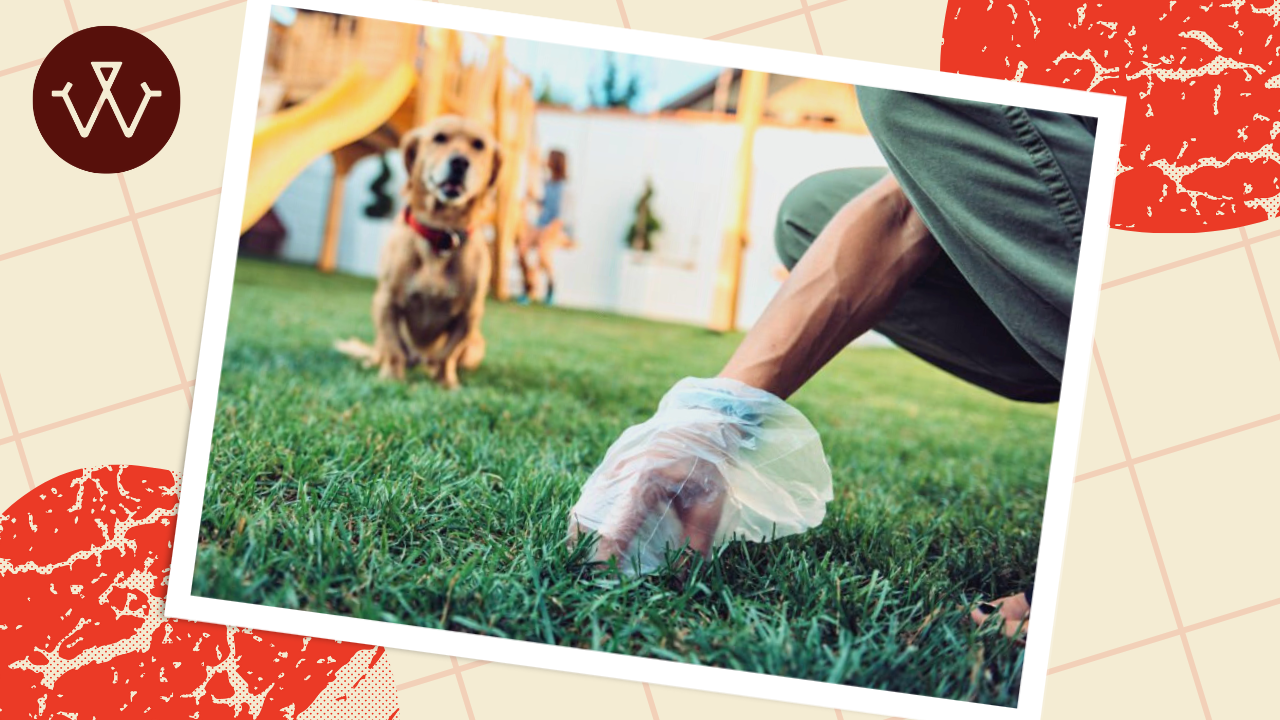
Everything to Know About Mucus in Dog Poop
Mucus in dog poop can be scary the first time you see it. Does it mean your dog is sick and needs urgent vet attention? Not usually. A little bit of mucus in dog stool every now and then is actually perfectly normal.
But how do you know when the mucus in your dog’s poop is nothing to worry about and when it could signal something serious? What should you do if you find mucus in your dog’s feces? Can you treat mucus in dog poop at home?
Here’s everything you need to know about mucus in dog stool.
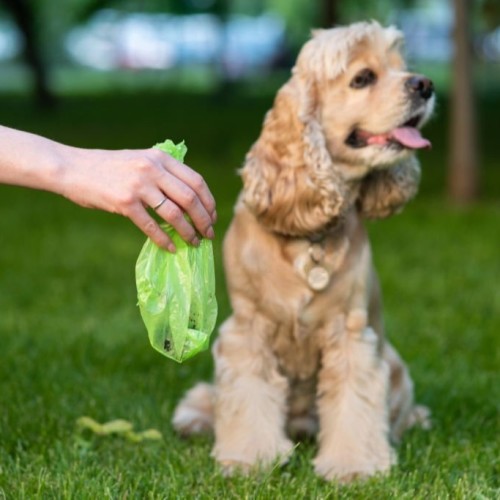
What Does Mucus in Dog Poop Look Like?
The texture of mucus could be described like slime or jelly, but it’s similar to the mucus that comes from your nose: it’s typically clear, but it may also be white, green, or blood-tinged. There might be just a little mucus on the poop, it might envelop an entire bowel movement, or your dog could poop just mucus and nothing else (especially if they’ve been having diarrhea and still have the urge to poop even though nothing is left in their digestive tract).
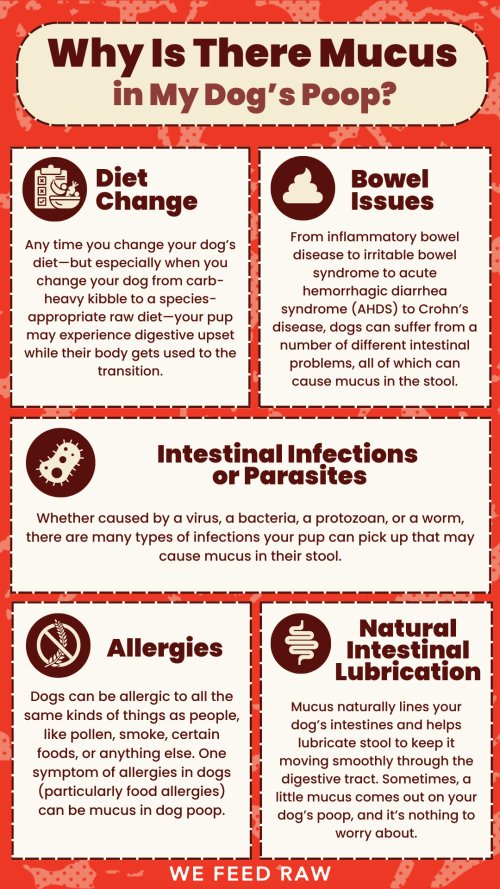
Why Is There Mucus in My Dog’s Poop?
There are lots of reasons why you might see mucus in your dog’s stool, and some of those reasons are nothing to worry about. Here are some of the most common reasons you might find mucus in your dog’s poop.
Natural Intestinal Lubrication
Mucus naturally lines your dog’s intestines and helps lubricate stool to keep it moving smoothly through the digestive tract. Sometimes, a little bit of the mucus comes out on your dog’s poop, and it’s totally natural and nothing to worry about.
If the mucus becomes excessive, doesn’t go away after a couple of days, or is accompanied by other symptoms (such as vomiting, lethargy, or not wanting to eat), then you should contact your vet.

Diet Change
Any time you change your dog’s diet—but especially when you change your dog from carb-heavy kibble to a species-appropriate raw diet—your pup may experience digestive upset while their body gets used to the transition. That may include mucus in your dog’s poop, loose stool, vomiting, diarrhea, or constipation.
Usually, digestive upset caused by a diet transition will resolve by itself within a few days, but if it doesn’t, you can find some tips here to help ease your pup’s tummy trouble.
Stress
Just like humans, dogs can experience stress, and it can lead to intestinal issues like mucus in dog stool. If you’ve recently added or lost a family member to the home (whether you had a baby, a kid went off to college, you got a new pet, or something else), you’ve recently moved, or any other big life event, the stress could be affecting your dog and resulting in mucus in their poop.
As the stressful situation calms down, so should your dog’s stomach problems. If there is a stressful situation ongoing in your home that you believe may be affecting your dog, you may want to talk to your vet about ways to calm their anxiety.
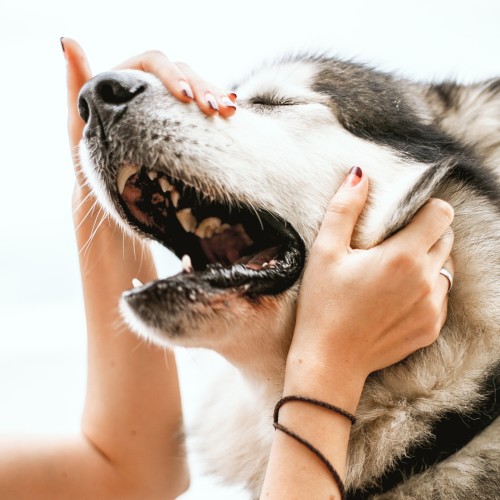
Allergies
Dogs can be allergic to all the same kinds of things that people are allergic to, such as pollen, smoke, certain foods, or anything else. One symptom of allergies in dogs (particularly food allergies) can be mucus in dog poop. If you suspect your dog is allergic to a particular type of food, you may want to try a food elimination diet and see if that eases their symptoms over time.
Eating Something They Shouldn’t
Since dogs have a history as scavengers, it’s no wonder they tend to eat things they shouldn’t from time to time. If your dog likes to counter surf, dig in the trash, or take “snacks” from the cat’s litter box, they may experience mucus in their stool. Unless your dog is showing signs of a blockage, poisoning, or severe illness, their poop should return to normal within a few days of eating something they shouldn’t have.
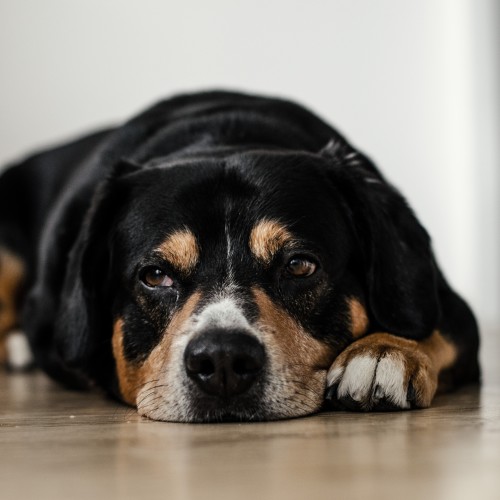
Intestinal Infections or Parasites
Whether caused by a virus (like rotavirus or distemper), a bacteria (like E. coli or Campylobacter), a protozoan (like Giardia), or a worm (like hookworms or tapeworms), there are many types of infections your pup can pick up that may cause mucus in their stool. Intestinal infections frequently have additional symptoms like diarrhea, lack of energy, or not wanting to eat.
If your dog has other symptoms besides just mucus in their stool, it may be time for a trip to the vet—particularly if you have a puppy or senior dog, as they can go downhill surprisingly quickly when they are ill.
Bowel Issues
From inflammatory bowel disease to irritable bowel syndrome to acute hemorrhagic diarrhea syndrome (AHDS) to Crohn’s disease, dogs can suffer from a number of different intestinal problems, all of which can cause mucus in the stool but will also usually cause additional symptoms like diarrhea, weight loss, or vomiting.
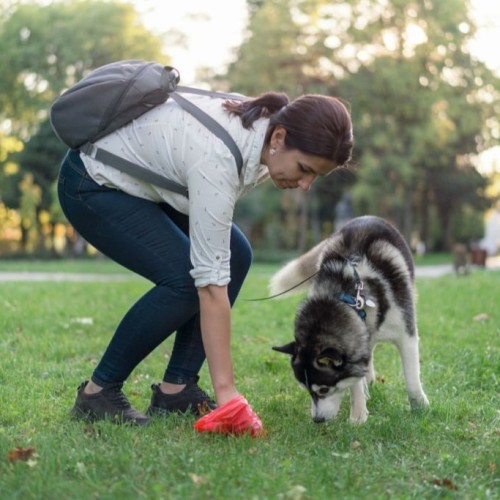
What to Do About Bloody Mucus in Dog Poop
Most of the things that can cause bloody mucus in dog stool—such as injury to the anal or rectal tissue, anal gland infection or inflammation, a tumor, or a polyp—require treatment from a veterinarian, so you should make a vet appointment to determine the cause of bloody mucus in dog poop.
Mucus in Dog Stool Home Remedies
If your dog is otherwise acting OK and doesn’t have any other significant symptoms with the mucus in their stool, you can generally treat the situation at home. Here are a few home remedies for mucus in dog poop.
Probiotics
Adding more beneficial bacteria to your dog’s digestive tract is always a good idea and may be all you need to treat the mucus in their stool. These days, there are plenty of probiotic supplements specifically made for dogs, so that’s usually the best way to go.
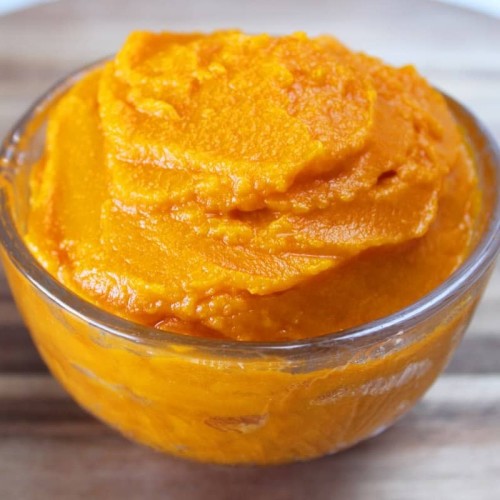
Pumpkin Puree
100% pure canned pumpkin puree (not pumpkin pie filling) can help with mucus in dog stool, diarrhea, and even constipation. Depending on your dog’s size, anywhere from a teaspoon to a tablespoon added to each meal can help clear up most mild digestive issues.
Diet
The refined carbohydrates in kibble may cause inflammation in your dog’s digestive tract, so if your pup frequently has mucus in their poop with no other symptoms, then switching to a species-appropriate raw diet may help.
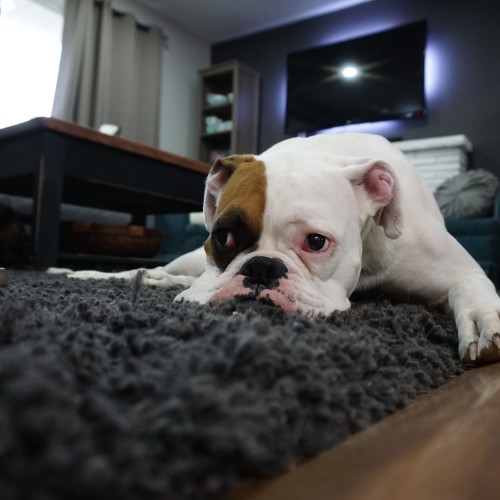
When to Go to a Vet for Mucus in Dog Stool
A little bit of mucus in your dog’s poop now and then is nothing to worry about, but you should take your dog to the vet if your dog has:
•Abnormal amounts of mucus in stool for an extended period
•Diarrhea
•Vomiting
•Poor appetite
•Weight loss
•Pain
•Depression
It’s especially important to take senior dogs and puppies to the vet sooner rather than later since their health can decline quicker than you might expect.
Is Mucus in a Dog’s Poop Dangerous?
All by itself, mucus in dog feces is usually not dangerous. It can, however, signal a serious problem if there is a lot more mucus than usual or if it’s accompanied by other symptoms, such as vomiting, diarrhea, or loss of appetite.
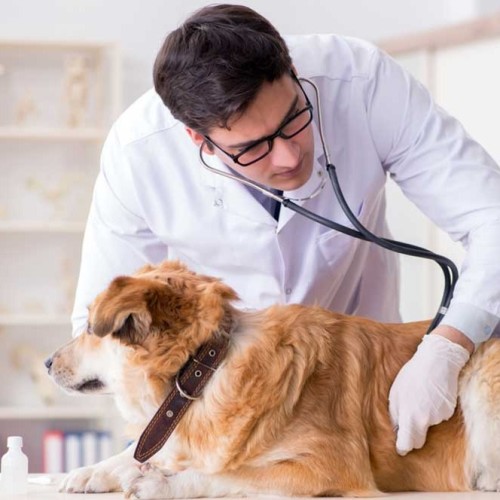
What a Vet Will Do if Your Dog Has Mucus in Their Poop
Some of the tests your vet may run to determine the cause of the mucus in your pup’s poop include:
•Urinalysis
•Blood work
•Fecal examination
•Biopsy of the intestinal tract
•Endoscopy
•Ultrasound
•Abdominal X-rays
Treatment Options for Mucus in Dog Poop
The treatment for mucus in dog stool depends on the cause. If the mucus is caused by an infection, your pup’s vet may prescribe antibiotics, antivirals, or antiparasitics. If an underlying health issue is causing the mucus, the vet will address that issue. There is no single go-to treatment option for mucus in dog poop since there is no single cause for mucus in dog stool.
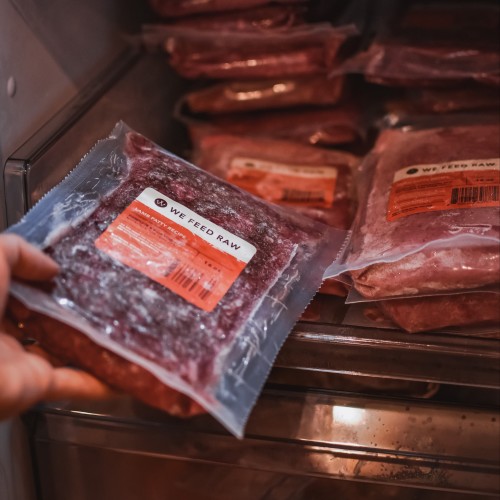
How to Prevent Mucus in a Dog’s Poop
You can’t always prevent mucus in dog poop, but there are some things you can do to reduce the likelihood of it happening, such as:
•Give your dog regular parasite preventatives
•Keep your dog away from things they shouldn’t eat
•Give your dog prebiotics and probiotics
•Feed your dog a high-quality raw diet
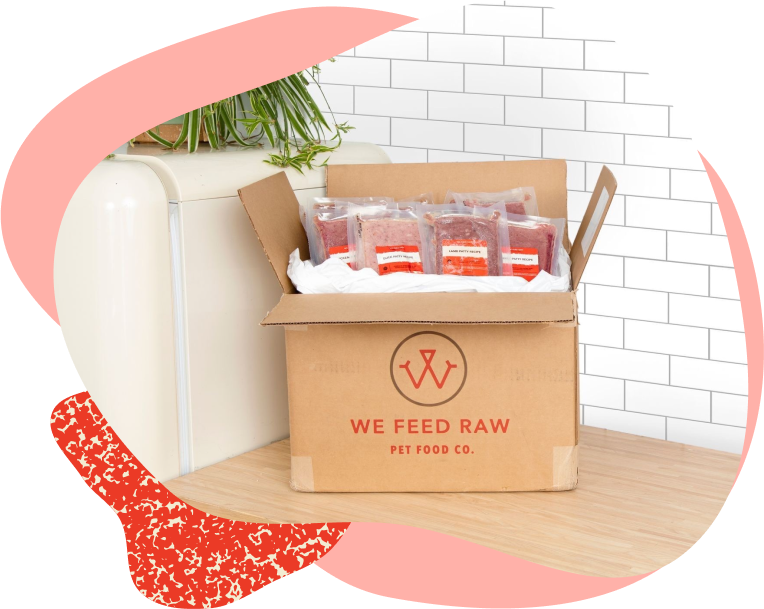
Complete & balanced raw meals.
Portioned out, packaged up, and cold-shipped (for FREE!).
